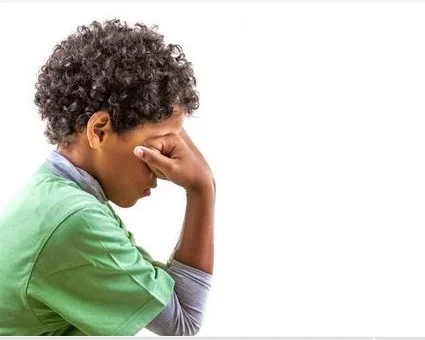When your child runs to you from the playground, hurt or angered by another child’s taunts, you probably have a strong reaction to name-calling. If your partner crosses the line when a heated conflict gets hurtfully personal, you may want to engage in a bit of name-calling yourself. For the most part, we know what name-calling is about.
It’s about verbally knocking someone down. Shaming. Putting someone in his or her place. Generally, we consider people who name-call to be bullies, abusive, or, at the very least, unkind. But is that always the case? Are there times when name-calling is normal or simply part of relationship territory? When is it just plain cruel?
Is there a place for normal name-calling?
Name-calling may be the most innocent in young children. A preschooler’s normal observations may include comments on a person’s appearance or differences, simply because they haven’t yet developed a verbal filter. When social acceptance starts to become a factor, children become more cognizant of the harm name-calling inflicts. They also learn how to employ words kindly or unkindly.
Name-calling as a normal part of interacting with others does happen in cases of family ribbing or good-natured teasing among children and adults with relationships healthy enough to tolerate it.
Name-calling may also happen periodically during an emotional conflict or a misguided attempt at humor. However, name-calling should not be a regular occurrence or communication strategy for troubled relationships, as it erodes respect and emotional safety.
When does name-calling cross the line into cruelty? Regular verbal assault is not innocent, normal, or acceptable. Persistent name-calling is a power play. Constant insults or sarcastic putdowns are cruel verbal abuse. Name-calling may manifest itself in sporadic mean-spirited jabs, or a systematic campaign to undermine another’s self-esteem. Consider the following tactics:
Labeling: One person labels you in a way that puts you in a negative, confining box (you’re dumb, you’re fat). Name-calling focuses on aspects or perceptions of your body, personality, or habits, spins them negatively, and continually brings attention to them. Over time, you may believe that everyone sees you that way. You may even come to believe it about yourself. Labeling is damaging because it takes your insecurities or vulnerabilities and cruelly attempts to make them your identity.
Inaccurate Exaggeration: You are constantly reminded of your mistakes or inadequacies (“you’re a slut”, “you’re an idiot”). This type of name-calling won’t let you resolve a conflict or issue in your relationship. Disdain and shame are regularly communicated through the verbal assault. Eventually, this can take a toll on your perspective. You may begin to take responsibility for the other person’s behavior or think there is something wrong with you.
Aggressive Humor: Name-calling cloaked in humor can be hard to pinpoint. The jabs may be called “nicknames” (“four-eyes”, “fat-ass”, “brace-face”) the rudeness may be hidden with laughter, the sarcasm concealed with a smile. The name-caller feels empowered by the lack of directness and accountability to continue the cruelty. You may begin to question yourself, wondering if you are too sensitive or overreacting despite your dwindling self-esteem.
Verbal Attack: Name-calling of this manner is usually reserved for private, demeaning control (“you’re worthless”, “you’re useless”). This is unmistakable abuse and cruelty, away from the support of anyone who knows or would intervene. You end up feeling emotionally crushed and isolated by the barrage.
Occasional name-calling happens at school, at work, or at home. But no one deserves cruelty.
If you or someone you know is dealing with this type of verbal abuse and you’d like some professional support, please reach out for a free consultation today and learn more about child counseling.


